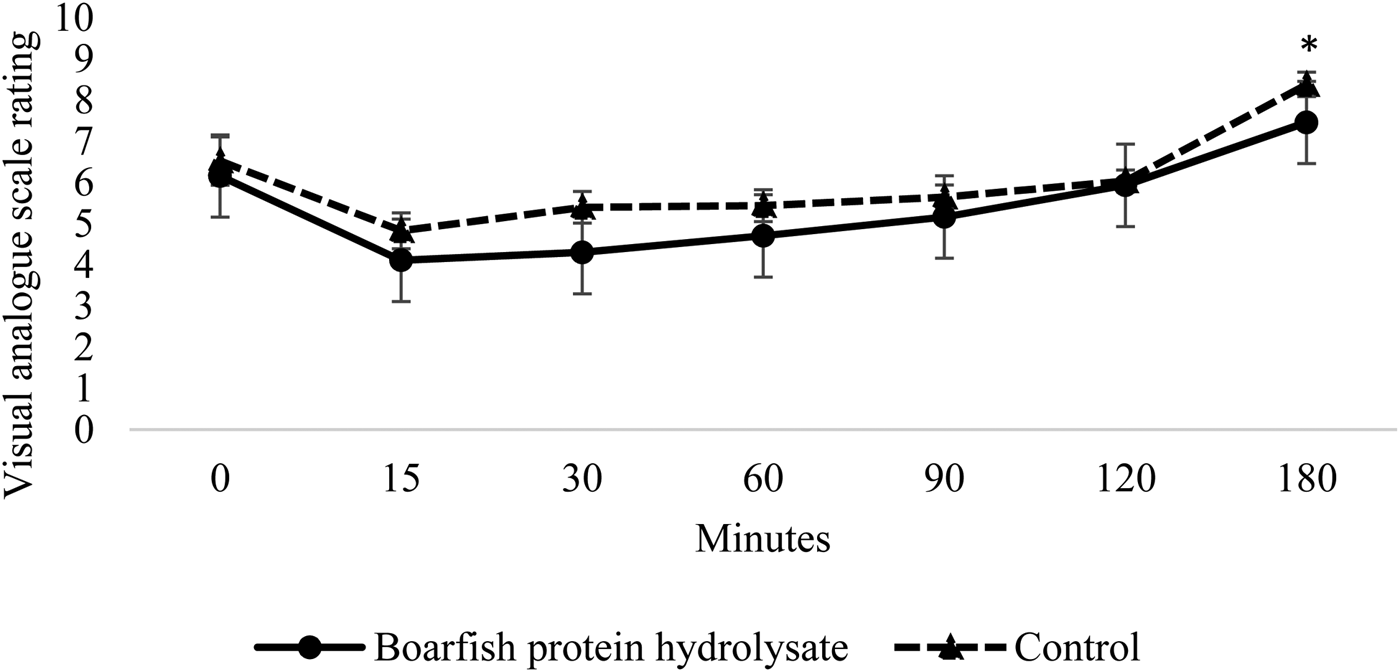There have been increased efforts to find an added-value application for the currently underutilised pelagic fish species, Boarfish (Capros aper)(Reference Hayes, Mora, Hussey and Aluko1). Recent in vitro and in vivo research has demonstrated that fish protein hydrolysate (BPH) has a beneficial effect on glycaemic control and reduced food intake(Reference Harnedy, Parthsarathy and McLaughlin2). This study aims to investigate the effect of consuming boarfish on postprandial glycaemic control in human participants.
A randomised controlled human intervention crossover study was undertaken in a cohort of healthy adults (n = 20) to investigate the effect of consuming a BPH (3·5 g) drink on postprandial glycaemic control in comparison to a control drink. Blood samples were collected before (0 mins) and after the test drink was consumed over a 3-hour period (15, 30, 60, 90,120 and 180 mins). Collected blood samples were analysed for biomarkers of satiety (ghrelin, leptin) and glycaemic control (glucose, insulin, glucagon-like peptide 1 (GLP-1)). Visual analogue scales (VAS) were completed at each time point by participants to provide a subjective measure of their satiety.
Paired T test analysis revealed no significant difference between the area under the curve (AUC) for insulin or glucose, when the effect of BPH consumption was compared to the standard drink. A significant increase in satiety rating by 11·1% at 180 minutes (P = 0·034) was reported following BPH consumption in comparison to the control drink (Fig. 1).

Fig. 1. Subjective hunger ratings over 3 hours by participants consuming boarfish protein hydrolysate and control.
This study showed that consuming 3·5 g of BPH had no effect on biomarkers of satiety or glycaemic control, albeit a higher dose may be required to see an effect. The BPH may have satiating effects which warrant further investigation.



